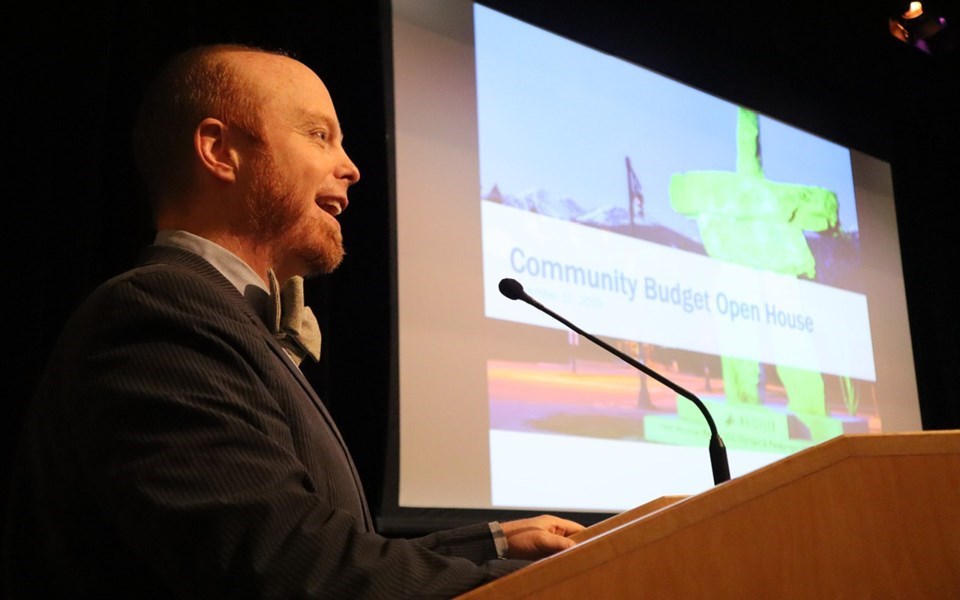Whistler’s mayor and council have settled on an 8.25-per-cent increase in property taxes for 2025, down from the 9.5 per cent originally floated by municipal staff.
The decision came at the Tuesday, Dec. 17 council meeting following weeks of back and forth between elected officials, who wrestled with how to pay for several major upcoming costs facing the municipality without creating undue sticker shock for the public.
“We’ve heard from some of the community members that times are tough right now. We’re seeing businesses being forced out, people who are having to defer taxes, people who are tightening their belts everywhere,” said Councillor Jessie Morden. “If we can slow that burn to them any way we can, I think we should.”
In October, Resort Municipality of Whistler (RMOW) staff floated a 9.5-per-cent hike, before coming back earlier this month with a proposed 9.1 per cent.
While the lower tax rate should come as a salve to Whistlerites in 2025, it doesn’t lessen the burn in future years. With the approved 8.25-per-cent hike next year, municipal staff projected increases of 8.1 per cent in 2026, followed by three years of 7.9 per cent through 2029. Those projections, part of the RMOW's commitment to delivering a five-year financial outlook annually, are just that: projections, and are likely to be higher when all is said and done.
“All of these numbers assume no additional spending is added,” explained municipal CFO Carlee Price. “Spending added in Year 1, if it’s operational, affects every subsequent year [of the five-year financial plan], and spending in Year 1, if it’s related to projects, brings that reserve balance down and increases the hurdle that needs to be overcome in those out years.”
It's a hurdle both officials and RMOW staff hope stays surmountable in the coming years. Council directed staff to reduce next year’s contribution to the RMOW’s general capital reserve by roughly $436,0000 in order to account for the lower 8.25-per-cent tax hike, which didn’t sit well with everyone around the council table.
“I’m not very supportive of continuing to dip into reserves to fund these,” said Coun. Jeff Murl. “I’d love to have someone table a decrease, but that directly allocates that funding from what they’re going to cut, or where that’s going to come from, other than reserves.”
Officials are especially conscious of reserves as the RMOW stares down three so-called “big rocks”—major costs that are unavoidable in the coming years. The first and most costly surrounds policing: once Whistler’s population hits 15,000, an inevitability in the 2026 census, the municipality’s share of the roughly $5.4 million in annual policing costs will rise from 70 to 90 per cent. The second major looming cost is for firefighting, a large chunk of which will go towards staffing the No. 3 Fire Hall in Spring Creek full-time, a decision council greenlit in January. The third big rock is for transit, with staff anticipating the Canada-B.C. COVID Safe Restart grant reserve to dry up by early 2027, foisting another roughly $1 million back onto the RMOW.
“Increases in policing, fire and transit are real costs,” said Mayor Jack Crompton. “They are our costs. We should pay our bills and not kick this down the road for someone else to deal with.”
At the Dec. 3 council meeting, officials passed an amendment asking staff to return with insights into how an 8.1-per-cent tax rate would impact next year’s budget, as well as the five-year financial plan. At Tuesday’s meeting, Crompton introduced an amendment that wound up passing asking instead for an 8.25-per-cent tax hike. That slight bump accounts for an upcoming $25,000 study looking into the feasibility of a valley-bottom gondola, and a $50,000 contribution to the Pemberton Commuter bus service.
“This is a very welcome, I think, contribution to [Pemberton’s] transit system,” said Coun. Jen Ford. “I would love to get to a place where there is one transit system that goes up and down the highway, all the way to West Vancouver. But I would say this is a good start to helping get cars off the road from Pemberton and support them in a way that we can.”




